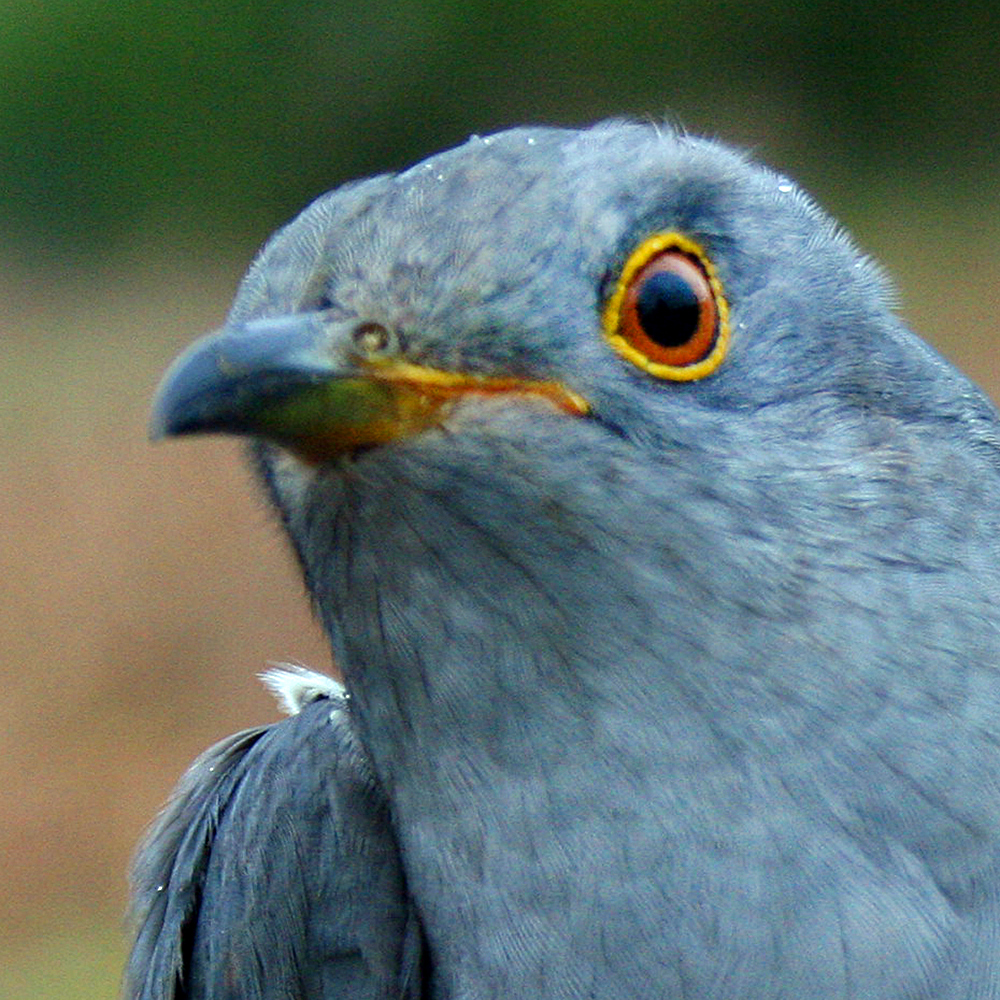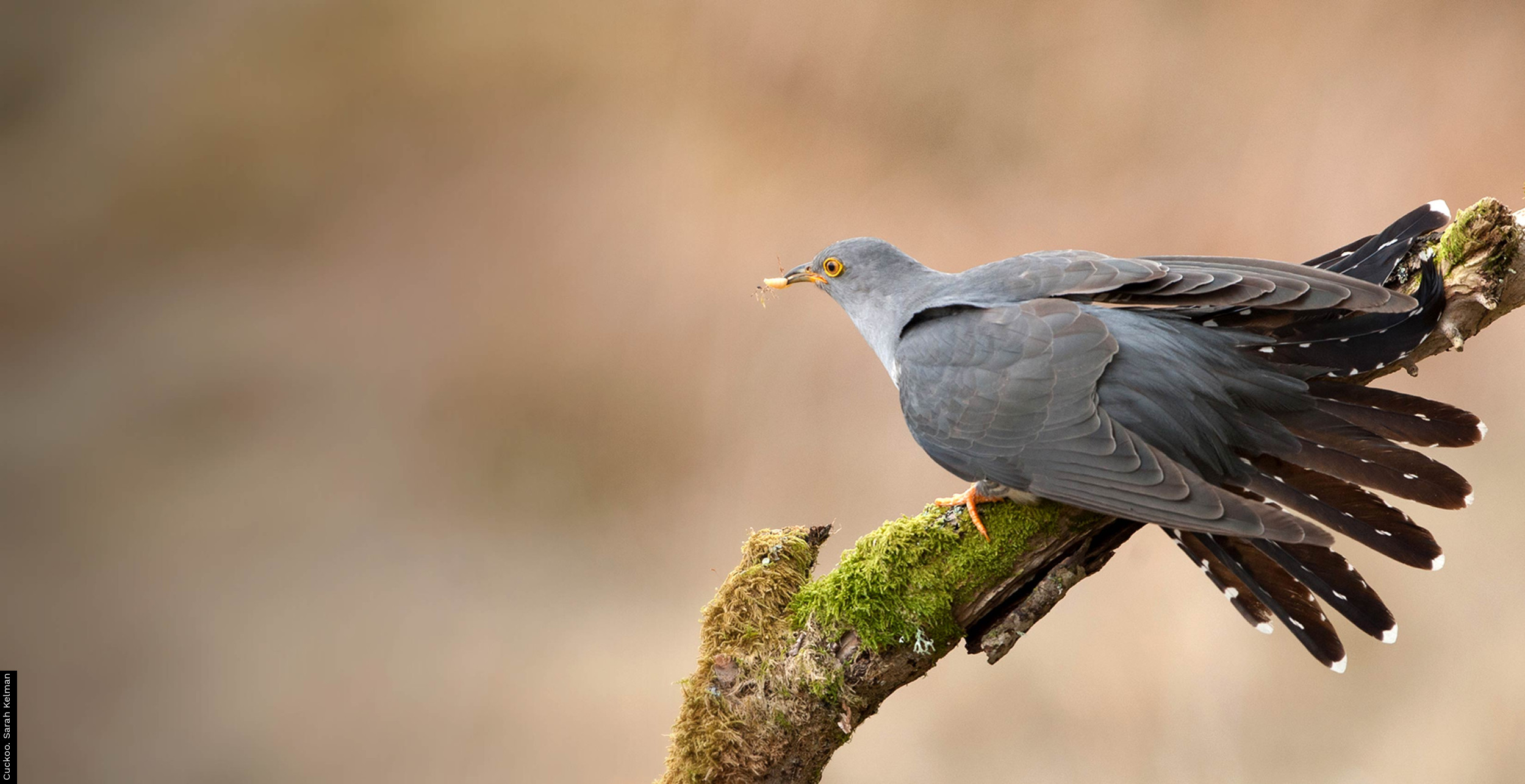Whortle
Devon Birds and The Dartmoor National Park Authority have jointly funded four cuckoos which they have named – Whortle, Emsworthy, Meavy and Wistman.

- Status:
- Inactive
- Tagged:
- Tuesday, May 14, 2013 - 01:00
- Tagging Location:
- Cold East Cross, Dartmoor
- Sex:
- Male
- Age when found:
- Over one year
- Satellite Tag No.:
- 128297
- Wing Length (mm):
- 229
Whortle's journey from 02 May 2014 to 20 January 2015
Whortle's movements
29 May 2015 - Further transmissions unlikely to be received
It looks likely that BB, Peter, Skinner, Waller and Whortle have failed to complete their migration this year, or their tags are no longer transmitting, and so we will be moving all of them to the inactive section of the website.
24 Feb 2015 - Cuckoos missing off the map
From time to time we ‘lose’ one or two of our Cuckoos only for them to reappear several days, or even weeks, later. We are never entirely sure why this might be at the individual level but during the course of the project we have noticed similarities between some of the ‘lost’ birds.
We have lost some of our birds just prior to them making a large movement and we think that this might be because they move into denser vegetation in order to feed up before embarking on a long flight. Moving into denser vegetation may mean that the solar panel that recharges the battery for the tag is in shade for periods of time and the battery receives a poorer charge, which in turn results in poorer performance from the satellite tag.
Once the birds have put on enough weight to begin their journey they move into the open and the tag begins charging again and the birds ‘reappear’. We also see the same thing happen, although to a lesser extent, when birds complete a long movement and presumably move into denser vegetation to rest and feed up
21 Jan 2015 - Emsworthy and Whortle on the move
Emsworthy and Whortle, who had both been south of Lake Mai, have moved off to new locations. Emsworthy has travelled 280km (175 miles) north and is now close to Mbandaka while Whortle has headed 370km (230 miles) in a north-easterly direction and become the most easterly Cuckoo of all those that we are currently following. This could be due to a change in the conditions in the area which has caused them to seek new locations.
19 Dec 2014 - Whortle settled in the rainforest
Whortle is settledin the rainforest to the north east of Lake Mai-Ndombe in the Democratic Republic of Congo. We last heard from him at 16.12 on 9 December.
12 Sep 2014 - A period of recovery
With most cuckoos now in the Sahel region, we're entering a fairly quiet period in the annual cycle of the tagged cuckoos with less movement than during the migration season.
Birds who completed their desert crossing will spend time in the Sahel recovering their body condition, and some may stay quite a long time. In previous years, cuckoos have stayed in this area for as much as several months, while others spend a shorter amount of time before moving south into the humid zone forests.
The eastern Sahel in Chad and south Sudan has received plenty of rain recently, and thus conditions are likely good for cuckoos. Northern Cameroon was slightly drier than average in August, and so cuckoos such as Derek, Dudley, Stanley, and Emsworthy may be moving on if foraging conditions aren't suitable.
Sponsor a Cuckoo and support the project
“This is my first year following the Cuckoo’s journey and I would like to thank you for the happiness and pleasure it has given me reading your updates. I look forward to the next journeys. Amazing!”
Sponsor your chosen Cuckoo with a monthly Direct Debit or a one-off donation, and receive exclusive updates and insight into their migration.
Become a Cuckoo sponsor todayInformation on this page is for illustrative purposes only and should not be reproduced without permission
© British Trust for Ornithology.



Share this page